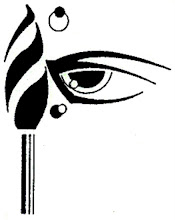"Art is Business"
The Library of Congress welcomes ArtSlant as "an important part of [its web archive] collection and the historical record." Initially, the ArtSlant archive will be available to researchers at Library facilities and by special arrangement. After one year, the Library may also make the collection available more broadly by hosting it on its public access website. Learn more about the Library's Web Archiving program goals here and check out their web archives.
NYARC
The New York Art Resources Consortium will also include ArtSlant in its web archive collections. NYARC comprises the research libraries of The Brooklyn Museum, The Frick Collection, and The Museum of Modern Art. These libraries are committed to "enabling access to the broadest possible range of print materials related to art and art history," and now they are also making archival copies of important web resources for preservation and access purposes.
All of the content included in the web archive collections is made publicly accessible via NYARC's Archive-It account (full-text search and metadata), within a shared catalog via records they create for websites (called ARCADE—the union catalog of the Frick, MoMA, and the Brooklyn Museum), and via full-text search in the
Internet Archive's Wayback Machine.
We hope you feel as proud as we do that the art and writing of everyone in the ArtSlant community will live on in these resources. We have been honored to shape and continue what Georgia Fee and Catherine Ruggles began, supporting ArtSlant's commitment to artists, arts writers, and criticism for over a decade.
The Internet Archive's Wayback Machine allows you to search for Web pages no longer accessible to the public. Browse by date through over 150 billion pages archived since 1996.
The Archive's mission is to help preserve digital artifacts and create a publicly accessible Internet library for researchers, historians, and scholars. The Archive collaborates with institutions, including the Library of Congress and the Smithsonian.
It can take 6 to 24 months for pages to appear in the Wayback Machine after collecting them. The Archive does not collect pages that require a password to access, pages tagged for "robot exclusion" by their owners, pages that are only accessible when a person types into and sends a form, or pages on secure servers. If a site owner requests the removal of a Web site, that site will be excluded from the Wayback Machine.
Note: Another source of previously published Web pages is Google. The search engine maintains a "cache" — a page version from when they last indexed it. Access is via the "cached" link that shows up under a search result.
Archives Collaboratives- the PopUp Research Station CAFÉ have collaborated with: Space in the Gap, Near North West Arts Council/Artists Design the Future, and the Phantom Gallery Chicago Network.
FY 2023 Grant Announcement: (Initial) Planning
The National Historical Publications and Records Commission (NHPRC) of the National Archives supports projects that promote access to America's historical records to encourage understanding of our democracy, history, and culture.
PopUp Research Station will be applying for the areas of documentary editing and publishing; archival preservation and processing of records for access; developing or updating descriptive systems; creation and development of archival and records management programs; development of standards, tools, and techniques to advance the work of archivists, records managers, and documentary editors; and promotion of the use of records by teachers, students, and the public.









